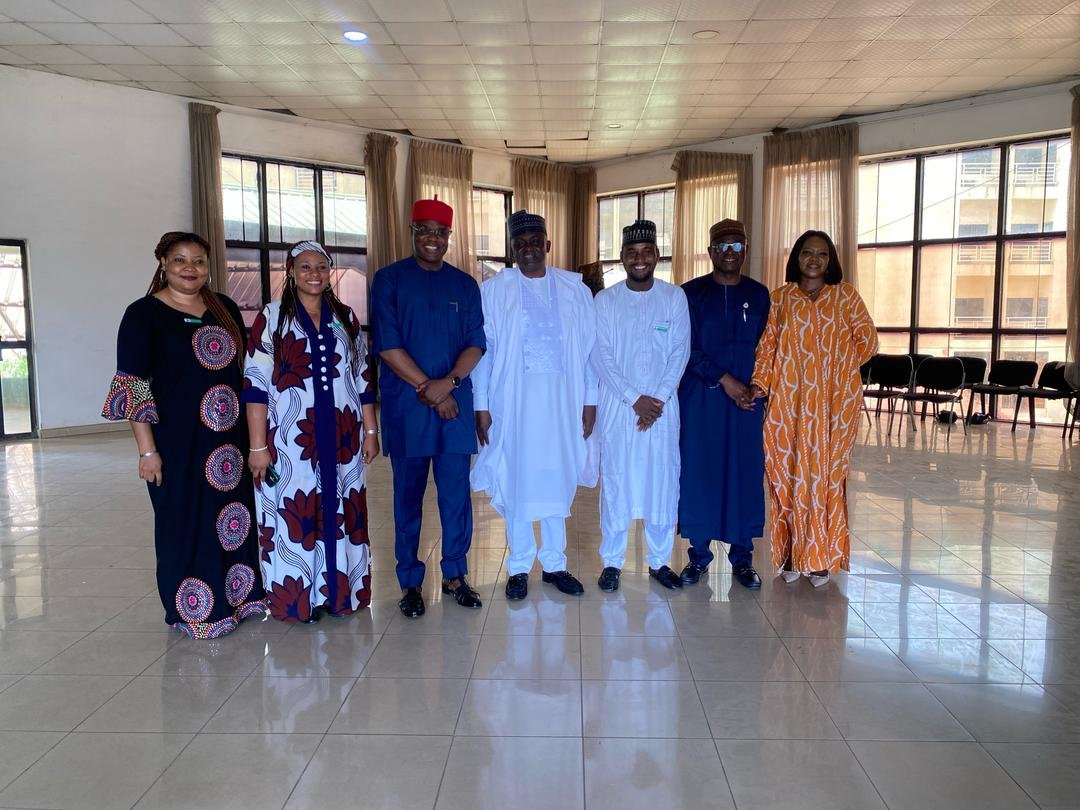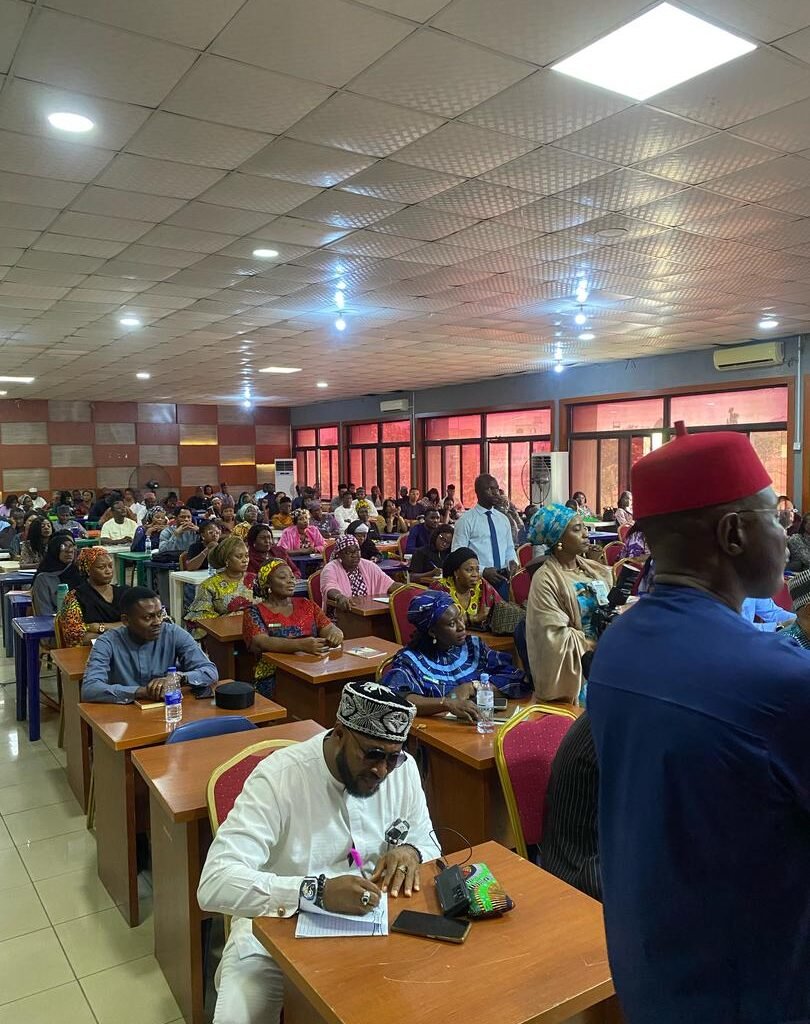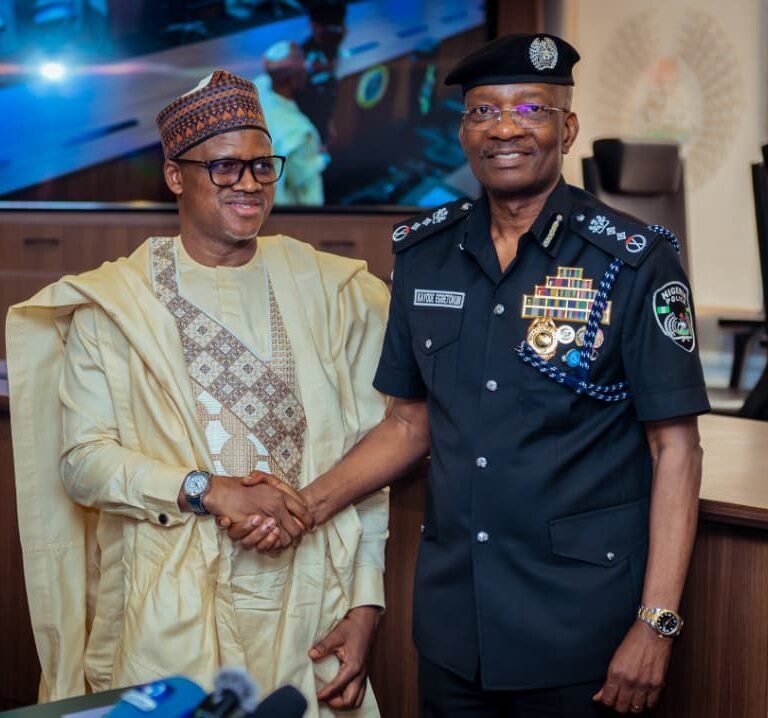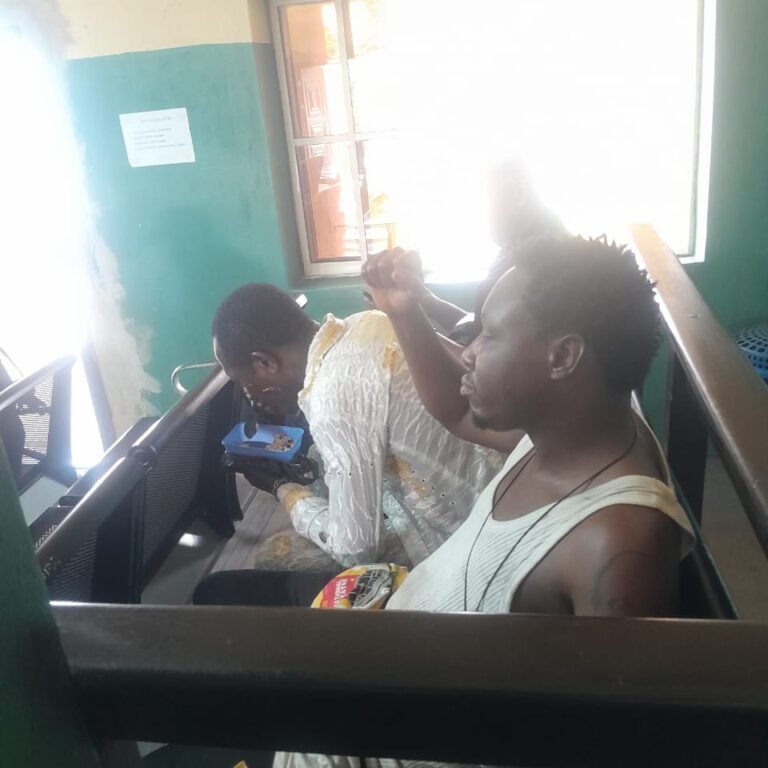
A group photograph taken at the ongoing Course 26 of the Foreign Service Academy following the presentation of a Paper titled:"Nigeria's Technical Aid Policy:Role of Mission" by the NTAC DG at the Public Service Institute,Abuja, on Thursday, April,17,2025. The NTAC DG,Rt.Hon.Buba(m) is flanked on his right by the Director of the Foreign Service Academy,Amb.Chimezie Ogu,and on his left by the NTAC's Director of Programmes,Amb.Zakari Usman,fda,among some participants in the programme.
“Describes Missions Abroad as ‘“‘Oxygen‘“‘ for the Survival of Nigeria’s Technical Aid Corps Mandate“
By Ameh Gabriel
The Director General of the Nigerian Technical Aid Corps (NTAC), Rt. Hon. Yusuf Buba Yakub, has reaffirmed the vital role of Nigerian Diplomatic Missions abroad in implementing and expanding Nigeria’s Technical Aid Policy.
Speaking in Abuja on Thursday during a presentation titled “Nigeria’s Technical Aid Policy: Role of Mission” to participants of the 26th Regular Course of the Foreign Service Academy at the Public Service Institute, Buba described the Missions as the “oxygen that sustains” the NTAC mandate.
In his detailed presentation, the DG outlined the objectives of the Technical Aid Corps Scheme, a flagship of Nigeria’s foreign policy designed to foster South-South cooperation, promote African and global solidarity, and project Nigeria’s international image as a responsible global partner.
Highlighting the achievements of the Scheme since its inception, Buba noted that thousands of skilled Nigerian professionals in fields such as Education, Health, Agriculture, Engineering, and Legal Services have been deployed to African, Caribbean, and Pacific (ACP) countries based on identified needs and requests.

Buba emphasized that the success and sustainability of the Scheme hinge largely on the active engagement of Nigeria’s Diplomatic Missions, which play critical roles in identifying needs, liaising with host governments, monitoring volunteers’ welfare, and ensuring alignment with Nigeria’s foreign policy goals.
“Without the Missions, we cannot breathe. They initiate and attend meetings with host countries, follow up on decisions, and maintain the two-way communication essential between NTAC and partner nations,” Buba stated. He further disclosed that the Heads of Chancery and Financial Attachés at the Missions are signatories to NTAC accounts in all countries hosting TAC volunteers.
Aligning with President Bola Ahmed Tinubu’s Renewed Hope Agenda and his 4-D Foreign Policy Thrust—Democracy, Development, Demography, and Diaspora—Buba stressed that the Technical Aid Corps is a vital tool of development diplomacy. He explained that it not only builds institutional capacity in partner nations but also strengthens people-to-people ties and boosts Nigeria’s international standing.
Drawing from his legislative experience as a former Chairman of the House of Representatives Committees on Foreign Affairs and Nigeria/China Relations, Buba emphasized the increasing relevance of soft power and cultural diplomacy in today’s global relations.
To illustrate the impact of NTAC initiatives, Buba recounted the story of Mr. Lukman Omotayo Alao, a TAC Volunteer in Jamaica, who introduced the traditional Yoruba textile “Adire” to the country. The initiative impressed Jamaican authorities so much that they renamed it “Jadire” and developed a thriving textile industry around it, spreading the fabric’s popularity across the Caribbean and into the United States.
“That is the power of Technical Aid diplomacy and soft power,” Buba said, underscoring the cultural and economic influence Nigeria can wield internationally.
He urged the future diplomats to embrace their roles with a deep appreciation for the broader developmental objectives of Nigeria’s technical aid initiatives. “As an African giant, our Missions must go beyond traditional diplomacy to champion technical partnerships that advance national interests abroad,” Buba advised.
In his remarks, Ambassador Chimezie Ogu, Director of the Foreign Service Academy, praised the DG for his passionate and visionary leadership, noting the positive reforms and enhanced inter-agency cooperation achieved under his tenure.
Mr. Stanley Emmanuel, speaking on behalf of the Course 26 participants, also expressed gratitude to the DG for sharing valuable insights, which culminated in an engaging interactive session exploring practical dimensions of Nigeria’s Technical Aid Policy.
The NTAC DG was accompanied to the event by Ambassador Zakari Usman, Director of Programs at NTAC and a Fellow of the National Defense College, who also contributed to the day’s discourse.







